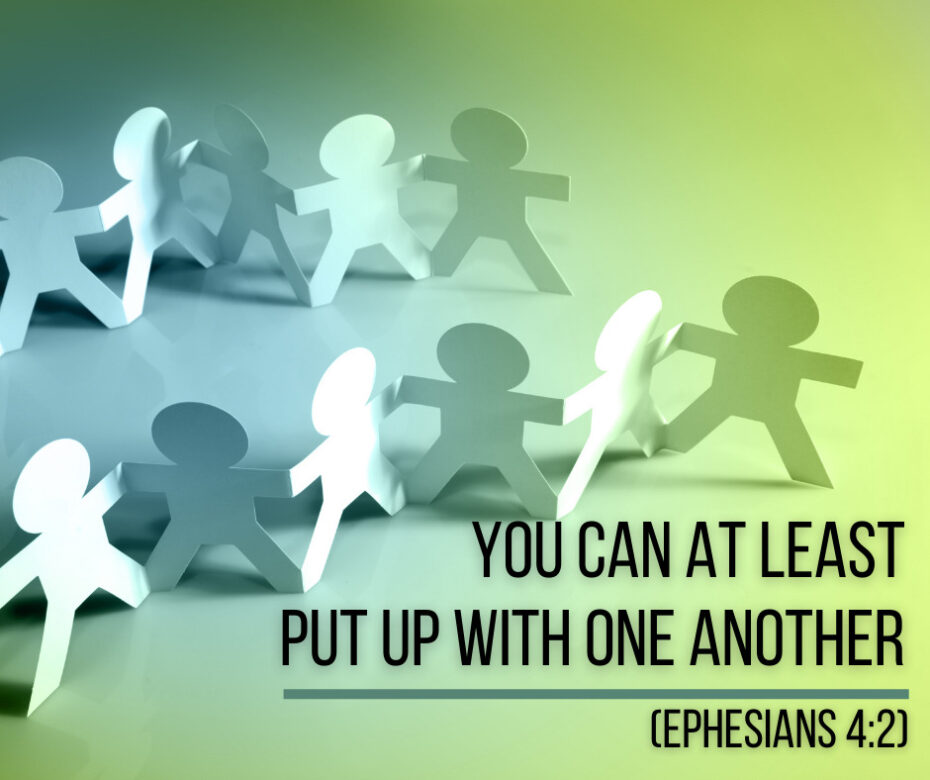I, therefore, the prisoner of the Lord, beseech you to walk worthy of the calling with which you were called, with all lowliness and gentleness, with longsuffering, bearing with one another in love (Eph 4:1-2; cf. Col 3:13).
“You don’t have to like each other, but you do have to stop hitting each other!”
That’s what I heard growing up.
You see, my brother and I got along with my sister, but we didn’t get along with each other. We fought—a lot. Certain of us got “accidentally” hurt regularly, and I spent many hours in “time-out.” However, while we fought as kids, I’m happy to say that the three of us became close when we reached adulthood. Now we talk almost every week.
I see an all-too-familiar pattern with my kids. The two youngest get along with the oldest, but they don’t get along with each other. They bicker all the time. And more often than not, when one of them comes crying to me about being punched by the other one, my detective skills soon reveal that “there is none righteous, no not one.” And my advice to them is that if they can’t like each other, they should at least refrain from punching each other.
Funnily enough, Paul had the same advice for the Ephesians.
When you live the normal church life—when you live in a thick Christian community with other believers—you probably won’t like everyone. You might even butt heads with the believers around you. After all, the more you get to know people, the more their little idiosyncrasies will get on your nerves.
So what can you do?
Ideally, you should love everyone in the church, and you all should be the very best of friends, right? After all, you’ll be spending eternity together. But realistically, people will probably annoy each other and will find it hard to get along. I have seen with my own two eyes old saints rub each other the wrong way! In that case, Paul urged the Ephesians to be “bearing with one another in love.”
The word bearing comes from the Greek anechō, defined as “to regard with tolerance, endure, bear with, put up with” (BDAG, p. 78).
I love Paul’s realism.
He knows what people are like.
He knows we can aggravate each other and that it can be hard to get along. So, sometimes the only thing to do is to put up with each other.
Even Jesus could feel that way about many in His generation:
Then Jesus answered and said, “O faithless and perverse generation, how long shall I be with you? How long shall I bear with you? Bring him here to Me” (Matt 17:17).
And Paul called the Corinthians to bear with him:
Oh, that you would bear with me in a little folly—and indeed you do bear with me (2 Cor 11:1).
And Paul spoke to the Thessalonians about bearing persecution:
So that we ourselves boast of you among the churches of God for your patience and faith in all your persecutions and tribulations that you endure [anechō] (2 Thess 1:4).
Did you know that simply putting up with people is a Christian virtue?
Hence, Paul urged the Ephesians to bear with one another for the sake of their church life.
The same goes for your church life. If you can’t get along with someone in your local church, then the command to love requires that you at least put up with that person.
Yes, that’s a low bar, but bearing with one another is better than fighting or creating a schism, or not meeting at all.


